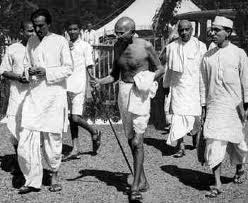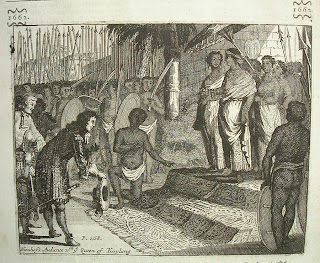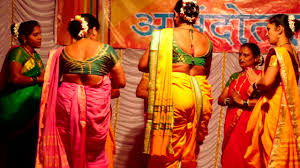Mahatma Gandhi, the Missing Laureate



'Mahatma Gandhi' the Missing Laureate
The Absence of Mahatma Gandhi as a Nobel Laureate Alfred Nobel executed his final will and testament on November 27, 1895, when he allocated the majority of his wealth to establish a collection of prestigious awards known as the Nobel Prizes. As delineated within the testament of Alfred Nobel, a specific provision was allocated to honor "the individual who has made the most significant or exemplary contributions towards fostering amity among nations, advocating for the elimination or diminishment of permanent military forces, and facilitating the organization and advancement of assemblies promoting peace." Acquire further knowledge regarding the Nobel Peace Prize spanning the years 1901 to 2010. A total of 91 Nobel Peace Prizes have been bestowed since the year 1901. The prize was not granted on a total of 19 instances, specifically during the years 1914-1918, 1923, 1924, 1928, 1932, 1939-1943, 1948, 1955-1956, 1966-1967, and 1972. What were the reasons for the non-awarding of the Peace Prizes during those specific years? According to the provisions outlined in the laws of the Nobel Foundation, in the event that none of the works being evaluated are deemed to possess the requisite level of significance as stipulated in the initial paragraph, the monetary prize shall be set aside and held in reserve until the subsequent year. In the event that the prize cannot be awarded at that time, the corresponding sum will be allocated to the limited funds of the Foundation. A decrease in the number of Nobel Prizes given was observed throughout the periods including World War I and II.
Several devoted admirers of Mahatma Gandhi have been awarded the Nobel Peace Prize, with the most recent recipient being former US President Barack Obama. However, there remains a question as to why the esteemed title was not conferred upon the 'Apostle of Peace' himself, despite his nomination on five separate occasions. Despite being short-listed on three occasions, Gandhi was not awarded the honor due to varying reasons provided by the selection committees. These reasons included concerns about his strong Indian nationalist stance and the perception that he oscillated between being a spiritual figure akin to Christ and an ordinary politician. One of the committees held the perspective that he did not possess the qualities of a genuine politician or advocate for international law, nor did he principally identify as a humanitarian assistance worker or an organizer of international peace congresses. The inquiry has been posed with regularity: Did the Norwegian Nobel Committee possess a limited scope in its assessment? Did the committee members possess an inability to comprehend and acknowledge the arduous pursuit of freedom exhibited by non-European populations? Alternatively, one may speculate whether the Norwegian committee members exhibited apprehension in bestowing a medal that could potentially compromise the diplomatic ties between their nation and Great Britain.
Gandhi received nominations in the years 1937, 1938, 1939, 1947, and shortly before his assassination in January 1948. The subsequent members of the Nobel Committee have shown public remorse over the exclusion, as evidenced by the chairman's statement upon the Dalai Lama's receipt of the Peace Prize in 1989, whereby he acknowledged that this decision was partially intended as an homage to Mahatma Gandhi. Nevertheless, the committee has refrained from providing any official statements regarding the conjectures surrounding the reasons behind Gandhi's exclusion from receiving the prize. Furthermore, until recently, the sources that could potentially offer insights into this topic were inaccessible.
Mahatma Gandhi – Who Was He?
Mohandas Karamchand Gandhi, commonly referred to as Mahatma or "Great-Souled" Gandhi, was born in Porbandar, the capital of a minor principality located in the present-day state of Gujarat in Western India. It is worth noting that his father held the position of prime minister in this region. The mother had a deep devotion to the Hindu faith. The Gandhi family, including the individual in question, were affiliated with a particular sect of Hinduism that placed significant emphasis on non-violence and religious harmony as core values. The family background of Mohandas Gandhi has subsequently been seen as a significant factor in elucidating his attainment of the prominent position he had within Indian society. During the latter half of the 1880s, Mohandas Gandhi embarked on a journey to London, where he pursued his academic endeavors in the field of law. Upon completion of his educational pursuits, the individual in question initially returned to India to engage in the legal profession as a lawyer. Subsequently, in the year 1893, he relocated to Natal, South Africa, where he secured employment with an Indian commercial organization. In the context of South Africa, Mahatma Gandhi actively endeavored to enhance the living conditions of the Indian minority population. This endeavor, primarily aimed at countering the rise of discriminatory legislation, fostered within him a profound sense of Indian identity and religious devotion, as well as a resolute determination to make personal sacrifices. He effectively used a non-violent approach in the Indian movement for fundamental human rights, resulting in significant achievements. The satyagraha method, also known as "truth force," was characterized by a strong idealism. It advocated for the breaking of rules that were deemed irrational or repressive by the Indians, while yet acknowledging the notion of adhering to the rule of law. Every person must acknowledge and bear the consequences for their transgression of legal statutes. Nevertheless, it is advisable for him to calmly and resolutely challenge the validity of the aforementioned law. This would potentially lead to the recognition by the enemies, namely the South African authorities initially and afterwards the British in India, of the illegality of their legislative actions. .
When Gandhi came back to India in 1915, news of his achievements in South Africa had already spread to his home country. In only a few years, during the First World War, he became a leading figure in the Indian National Congress. Through the interwar period he initiated a series of non-violent campaigns against the British authorities. At the same time he made strong efforts to unite the Indian Hindus, Muslims and Christians, and struggled for the emancipation of the 'untouchables' in Hindu society. While many of his fellow Indian nationalists preferred the use of non-violent methods against the British primarily for tactical reasons, Gandhi's non-violence was a matter of principle. His firmness on that point made people respect him regardless of their attitude towards Indian nationalism or religion. Even the British judges who sentenced him to imprisonment recognised Gandhi as an exceptional personality.
First Nomination for the Nobel Peace Prize
Among those who strongly admired Gandhi were the members of a network of pro-Gandhi "Friends of India" associations which had been established in Europe and the USA in the early 1930s. The Friends of India represented different lines of thought. The religious among them admired Gandhi for his piety. Others, anti-militarists and political radicals, were sympathetic to his philosophy of non-violence and supported him as an opponent of imperialism.
In 1937 a member of the Norwegian Storting (Parliament), Ole Colbjørnsen (Labour Party), nominated Gandhi for that year's Nobel Peace Prize, and he was duly selected as one of thirteen candidates on the Norwegian Nobel Committee's shortlist. Colbjørnsen did not himself write the motivation for Gandhi’s nomination; it was written by leading women of the Norwegian branch of "Friends of India", and its wording was of course as positive as could be expected.
The committee's adviser, professor Jacob Worm-Müller, who wrote a report on Gandhi, was much more critical. On the one hand, he fully understood the general admiration for Gandhi as a person: "He is, undoubtedly, a good, noble and ascetic person – a prominent man who is deservedly honoured and loved by the masses of India." On the other hand, when considering Gandhi as a political leader, the Norwegian professor's description was less favourable. There are, he wrote, "sharp turns in his policies, which can hardly be satisfactorily explained by his followers. (...) He is a freedom fighter and a dictator, an idealist and a nationalist. He is frequently a Christ, but then, suddenly, an ordinary politician."
Gandhi had many critics in the international peace movement. The Nobel Committee adviser referred to these critics in maintaining that he was not consistently pacifist and that he should have known that some of his non-violent campaigns towards the British would degenerate into violence and terror. This was something that had happened during the first Non-Cooperation Campaign in 1920-1921, e.g. when a crowd in Chauri Chaura, the United Provinces, attacked a police station, killed many of the policemen, and then set fire to the police station. A frequent criticism from non-Indians was also that Gandhi was too much of an Indian nationalist. In his report, Professor Worm-Müller expressed his own doubts as to whether Gandhi's ideals were meant to be universal or primarily Indian: "One might say that it is significant that his well-known struggle in South Africa was on behalf of the Indians only, and not of the blacks whose living conditions were even worse." The name of the 1937 Nobel Peace Prize Laureate was to be Lord Cecil of Chelwood. We do not know whether the Norwegian Nobel Committee seriously considered awarding the Peace Prize to Gandhi that year, but it seems rather unlikely. Ole Colbjørnsen renominated him both in 1938 and 1939, but ten years were to pass before Gandhi made the committee's shortlist again
1947: Victory and Defeat
In 1947 the nominations of Gandhi came by telegram from India, via the Norwegian Foreign Office. The nominators were B.G. Kher, Prime Minister of Bombay, Govindh Bhallabh Panth, Premier of United Provinces, and Mavalankar, the President of the Indian Legislative Assembly. Their arguments in support of his candidacy were written in telegram style, like the one from Govind Bhallabh Panth: "Recommend for this year Nobel Prize Mahatma Gandhi architect of the Indian nation the greatest living exponent of the moral order and the most effective champion of world peace today." There were to be six names on the Nobel Committee's shortlist, Mohandas Gandhi was one of them.
The Nobel Committee's adviser, the historian Jens Arup Seip, wrote a new report which is primarily an account of Gandhi's role in Indian political history after 1937. "The following ten years," Seip wrote, "from 1937 up to 1947, led to the event which for Gandhi and his movement was at the same time the greatest victory and the worst defeat – India's independence and India's partition." The report describes how Gandhi acted in the three different, but mutually related conflicts that the Indian National Congress had to handle in the last decade before independence: the struggle between the Indians and the British; the question of India's participation in the Second World War; and, finally, the conflict between Hindu and Muslim communities. In all these matters, Gandhi consistently followed his own principles of non-violence.
The Seip report was not critical towards Gandhi in the same way as the report written by Worm-Müller ten years earlier. It was rather favourable, yet not explicitly supportive. Seip also wrote briefly on the ongoing separation of India and the new Muslim state, Pakistan, and concluded – rather prematurely it would seem today: "It is generally considered, as expressed for example in The Times of 15 August 1947, that if 'the gigantic surgical operation' constituted by the partition of India, has not led to bloodshed of much larger dimensions, Gandhi's teachings, the efforts of his followers and his own presence, should get a substantial part of the credit."
Having read the report, the members of the Norwegian Nobel Committee must have felt rather updated on the last phase of the Indian struggle for independence. However, the Nobel Peace Prize has never been awarded for that sort of struggle. The committee members also had to consider the following issues: Should Gandhi be selected for being a symbol of non-violence, and what political effects could be expected if the Peace Prize was awarded to the most prominent Indian leader – relations between India and Pakistan were far from developing peacefully during the autumn of 1947?
From the diary of committee chairman Gunnar Jahn, we now know that when the members were to make their decision on October 30, 1947, two acting committee members, the Christian conservative Herman Smitt Ingebretsen and the Christian liberal Christian Oftedal spoke in favour of Gandhi. One year earlier, they had strongly favoured John Mott, the YMCA leader. It seems that they generally preferred candidates who could serve as moral and religious symbols in a world threatened by social and ideological conflicts. However, in 1947 they were not able to convince the three other members. The Labour politician Martin Tranmæl was very reluctant to award the Prize to Gandhi in the midst of the Indian-Pakistani conflict, and former Foreign Minister Birger Braadland agreed with Tranmæl. Gandhi was, they thought, too strongly committed to one of the belligerents. In addition, both Tranmæl and Jahn had learned that, one month earlier, at a prayer meeting, Gandhi had made a statement that indicated that he had given up his consistent rejection of war. Based on a telegram from Reuters, The Times, on September 27, 1947, under the headline "Mr. Gandhi on 'war' with Pakistan" reported:
"Mr. Gandhi told his prayer meeting tonight that, though he had always opposed all warfare, if there was no other way of securing justice from Pakistan and if Pakistan persistently refused to see its proven error and continued to minimize it, the Indian Union Government would have to go to war against it. No one wanted war, but he could never advise anyone to put up with injustice. If all Hindus were annihilated for a just cause he would not mind. If there was war, the Hindus in Pakistan could not be fifth columnists. If their loyalty lay not with Pakistan they should leave it. Similarly Muslims whose loyalty was with Pakistan should not stay in the Indian Union."
Gandhi had immediately stated that the report was correct, but incomplete. At the meeting he had added that he himself had not changed his mind and that "he had no place in a new order where they wanted an army, a navy, an air force and what not".
Both Jahn and Tranmæl knew that the first report had not been complete, but they had become very doubtful. Jahn in his diary quoted himself as saying: "While it is true that he (Gandhi) is the greatest personality among the nominees – plenty of good things could be said about him – we should remember that he is not only an apostle for peace; he is first and foremost a patriot. (...) Moreover, we have to bear in mind that Gandhi is not naive. He is an excellent jurist and a lawyer." It seems that the Committee Chairman suspected Gandhi's statement one month earlier to be a deliberate step to deter Pakistani aggression. Three of five members thus being against awarding the 1947 Prize to Gandhi, the Committee unanimously decided to award it to the Quakers.
1948: A Posthumous Award Considered
Mahatma Gandhi was assassinated on 30 January 1948, two days before the closing date for that year's Nobel Peace Prize nominations. The Committee received six letters of nomination naming Gandhi; among the nominators were the Quakers and Emily Greene Balch, former Laureates. For the third time Gandhi came on the Committee's shortlist – this time the list only included three names – and Committee adviser Seip wrote a report on Gandhi's activities during the last five months of his life. He concluded that Gandhi, through his course of life, had put his profound mark on an ethical and political attitude that would prevail as a norm for a large number of people both inside and outside India: "In this respect Gandhi can only be compared to the founders of religions."
Nobody had ever been awarded the Nobel Peace Prize posthumously. But according to the statutes of the Nobel Foundation in force at that time, the Nobel Prizes could, under certain circumstances, be awarded posthumously. Thus it was possible to give Gandhi the prize. However, Gandhi did not belong to an organization, he left no property behind and no will; who should receive the Prize money? The Director of the Norwegian Nobel Institute, August Schou, asked another of the Committee's advisers, lawyer Ole Torleif Røed, to consider the practical consequences if the Committee were to award the Prize posthumously. Røed suggested a number of possible solutions for general application. Subsequently, he asked the Swedish prize-awarding institutions for their opinion. The answers were negative; posthumous awards, they thought, should not take place unless the laureate died after the Committee's decision had been made.
On November 18, 1948, the Norwegian Nobel Committee decided to make no award that year on the grounds that "there was no suitable living candidate". Chairman Gunnar Jahn wrote in his diary: "To me it seems beyond doubt that a posthumous award would be contrary to the intentions of the testator." According to the chairman, three of his colleagues agreed in the end, only Mr. Oftedal was in favour of a posthumous award to Gandhi.
Later, there have been speculations that the committee members could have had another deceased peace worker than Gandhi in mind when they declared that there was "no suitable living candidate", namely the Swedish UN envoy to Palestine, Count Bernadotte, who was murdered in September 1948. Today, this can be ruled out; Bernadotte had not been nominated in 1948. Thus it seems reasonable to assume that Gandhi would have been invited to Oslo to receive the Nobel Peace Prize had he been alive one more year.
Why Was Gandhi Never Awarded the Nobel Peace Prize?
Up to 1960, the Nobel Peace Prize was awarded almost exclusively to Europeans and Americans. In retrospect, the horizon of the Norwegian Nobel Committee may seem too narrow. Gandhi was very different from earlier Laureates. He was no real politician or proponent of international law, not primarily a humanitarian relief worker and not an organizer of international peace congresses. He would have belonged to a new breed of Laureates.
There is no hint in the archives that the Norwegian Nobel Committee ever took into consideration the possibility of an adverse British reaction to an award to Gandhi. Thus it seems that the hypothesis that the Committee's omission of Gandhi did due to its members’ not want to provoke British authorities, may be rejected.
In 1947 the conflict between India and Pakistan and Gandhi's prayer-meeting statement, which made people wonder whether he was about to abandon his consistent pacifism, seem to have been the primary reasons why he was not selected by the committee's majority. Unlike the situation today, there was no tradition for the Norwegian Nobel Committee to try to use the Peace Prize as a stimulus for the peaceful settlement of regional conflicts.
During the last months of his life, Gandhi worked hard to end the violence between Hindus and Muslims that followed the partition of India. We know little about the Norwegian Nobel Committee's discussions on Gandhi's candidature in 1948 – other than the above-quoted entry of November 18 in Gunnar Jahn's diary – but it seems clear that they seriously considered a posthumous award. When the committee, for formal reasons, ended up not making such an award, they decided to reserve the prize, and then, one year later, not to spend the prize money for 1948 at all. What many thought should have been Mahatma Gandhi's place on the list of Laureates was silently but respectfully left open.
Sources:
http://articles.timesofindia.indiatimes.com/2009-10-11/india
http://www.nobelprize.org/nobel_prizes/peace/articles/gandhi/










Comments